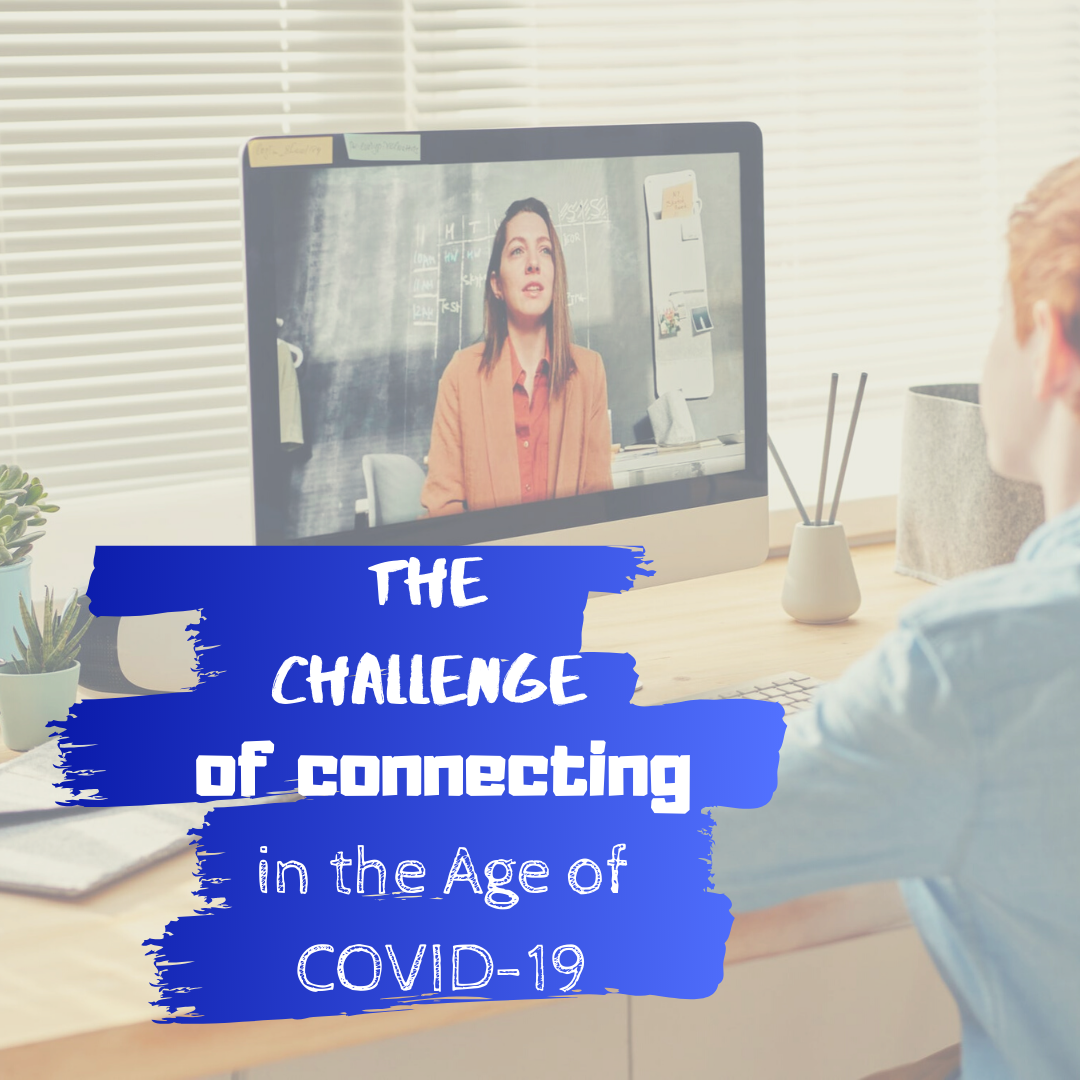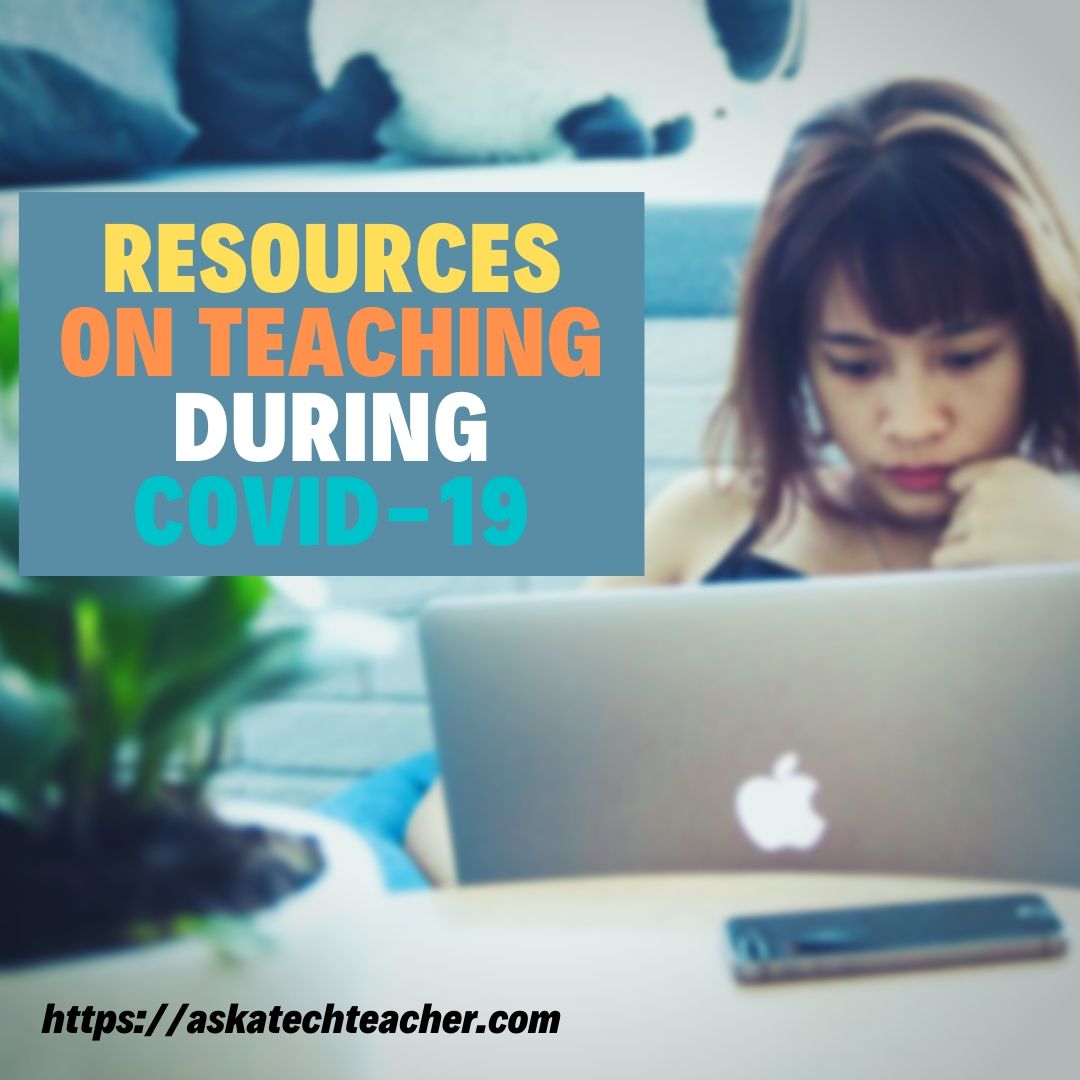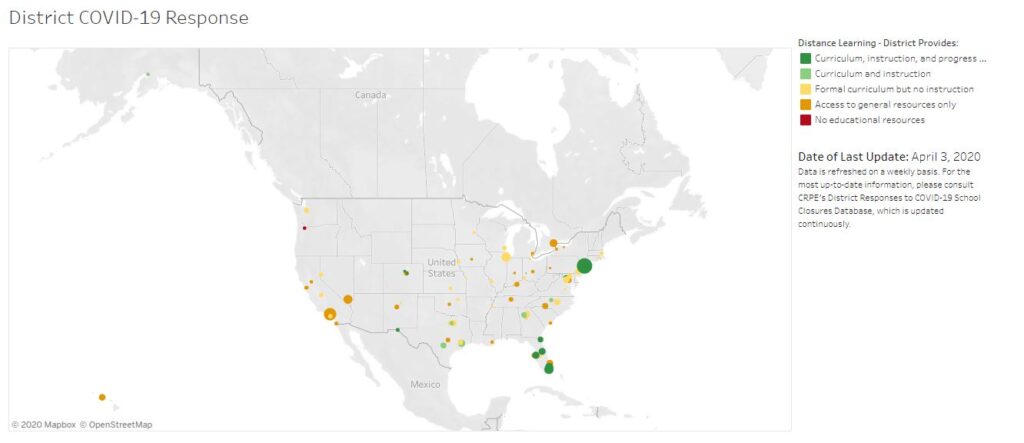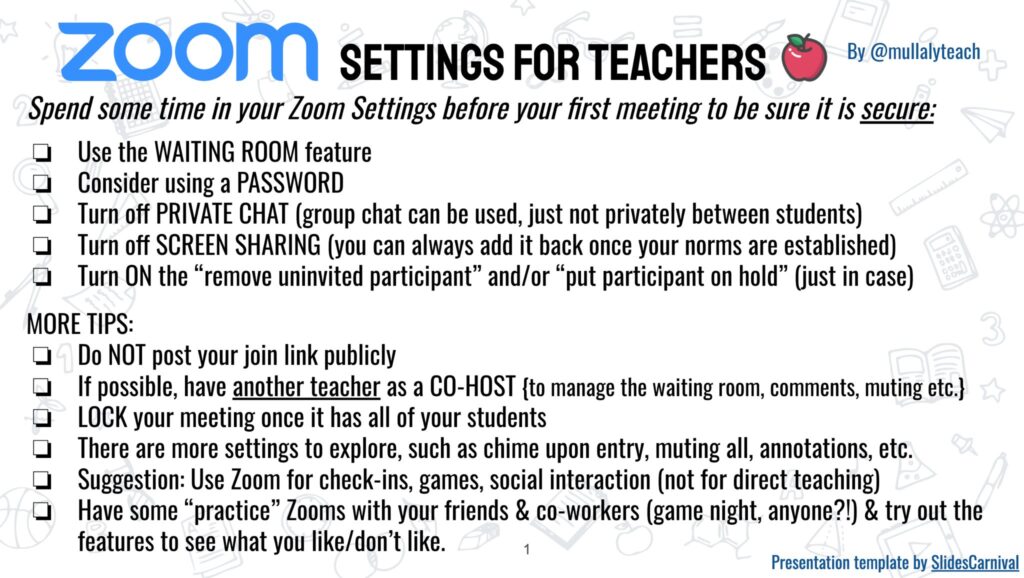Category: Online education
Last Chance: Differentiated Instruction Online Class (MTI 563)
MTI 563: The Differentiated Teacher
MTI 563 starts Monday, July 6, 2020! Last chance to sign up. Click this link; scroll down to MTI 563 and click for more information and to sign up.
Differentiation in the classroom means meeting students where they are most capable of learning. It is not an extra layer of work, rather a habit of mind for both teacher and student. Learn granular approaches to infusing differentiation into all of your lesson plans, whether you’re a Common Core school or not, with this hands-on, interactive class. Ideas include visual, audio, video, mindmaps, infographics, graphic organizers, charts and tables, screenshots, screencasts, images, games and simulations, webtools, and hybrid assessments.
Assessment is based on involvement, interaction with classmates, and completion of projects so be prepared to be fully-involved and an eager risk-taker. Price includes course registration, college credit, and all necessary materials. To enroll, click the link above, search for MTI 563 and sign up. If you don’t find the listing, it means it isn’t currently offered. That usually occurs in May-September-January. Email askatechteacher@gmail.com for upcoming dates.
Share this:
- Click to share on Facebook (Opens in new window) Facebook
- Click to share on X (Opens in new window) X
- Click to share on LinkedIn (Opens in new window) LinkedIn
- Click to share on Pinterest (Opens in new window) Pinterest
- Click to share on Telegram (Opens in new window) Telegram
- Click to email a link to a friend (Opens in new window) Email
- More
Last Chance for this College-credit Class (MTI 557)
MTI 557: Building Digital Citizens
vv
starts Monday, June 29, 2020
xx
If students use the internet, they must be familiar with the rights and responsibilities required to be good digital citizens. In this class, you’ll learn what topics to introduce, how to unpack them, and how to make them authentic to student lives.
Topics include:
- copyrights, fair use, public domain
- cyberbullying
- digital commerce
- digital communications
- digital footprint, digital privacy
- digital rights and responsibilities
- digital search/research
- image—how to use them legally
- internet safety
- netiquette
- passwords
- plagiarism
- social media
At the completion of this course, you will be able to:
- Know how to blend digital citizenship into lesson plans that require the Internet
- Be comfortable in your knowledge of all facets of digital citizenship
- Become an advocate of safe, legal, and responsible use of online resources
- Exhibit a positive attitude toward technology that supports learning
- Exhibit leadership in teaching and living as a digital citizen
Assessment is based on involvement, interaction with classmates, and completion of projects so be prepared to be fully-involved and an eager risk-taker. Price includes course registration, college credit, and all necessary materials.
To enroll, click the link above, search for MTI 557 and sign up. Need help? Email askatechteacher@gmail.com for upcoming dates.
Share this:
- Click to share on Facebook (Opens in new window) Facebook
- Click to share on X (Opens in new window) X
- Click to share on LinkedIn (Opens in new window) LinkedIn
- Click to share on Pinterest (Opens in new window) Pinterest
- Click to share on Telegram (Opens in new window) Telegram
- Click to email a link to a friend (Opens in new window) Email
- More
Tech Ed Resources–Certificate/College Credit Classes
I get a lot of questions from readers about what tech ed resources I use in my classroom so I’m going to take a few days this summer to review them with you. Some are edited and/or written by members of the Ask a Tech Teacher crew. Others, by tech teachers who work with the same publisher I do. All of them, I’ve found well-suited to the task of scaling and differentiating tech skills for age groups, scaffolding learning year-to-year, taking into account the perspectives and norms of all stakeholders, with appropriate metrics to know learning is organic and granular.
Today: Classes
Ask a Tech Teacher offers a variety of classes throughout the year. All are online, hands-on, with an authentic use of tools you’ll want for your classroom.
To find out more, email askatechteacher@gmail.com
 The Tech-infused Teacher
The Tech-infused Teacher
Certificate
By request; delivered digitally to your school or District
The 21st Century lesson blends technology with teaching to build a collaborative, differentiated, and shared learning environment. In this course, you will use a suite of digital tools to make that possible while addressing overarching concepts like digital citizenship, internet search and research, authentic assessment, digital publishing, and immersive keyboarding. You will actively collaborate, share knowledge, provide constructive feedback to classmates, publish digitally, and differentiate for unique needs. Classmates will become the core of your ongoing Personal Learning Network.
Assessment is project-based so be prepared to be fully-involved and an eager risk-taker.
Price includes course registration and all necessary materials
Share this:
- Click to share on Facebook (Opens in new window) Facebook
- Click to share on X (Opens in new window) X
- Click to share on LinkedIn (Opens in new window) LinkedIn
- Click to share on Pinterest (Opens in new window) Pinterest
- Click to share on Telegram (Opens in new window) Telegram
- Click to email a link to a friend (Opens in new window) Email
- More
Last Chance: The Tech-infused Teacher (MTI 562)
MTI 562: The Tech-infused Teacher
MTI 562 starts Monday, June 22, 2020
The 21st century lesson blends technology with teaching to build a collaborative, differentiated, and shared learning environment. In this course, you will use a suite of digital tools to make that possible while addressing overarching concepts like digital citizenship, internet search and research, authentic assessment, digital publishing, and immersive keyboarding. You will actively collaborate, share knowledge, provide constructive feedback to classmates, publish digitally, and differentiate for unique needs. Classmates will become the core of your ongoing Personal Learning Network.
Assessment is based on involvement, interaction with classmates, and completion of projects so be prepared to be fully-involved and an eager risk-taker. Price includes course registration, college credit, and all necessary materials. To enroll, click the link above and sign up. Email askatechteacher at gmail dot com with questions.
Share this:
- Click to share on Facebook (Opens in new window) Facebook
- Click to share on X (Opens in new window) X
- Click to share on LinkedIn (Opens in new window) LinkedIn
- Click to share on Pinterest (Opens in new window) Pinterest
- Click to share on Telegram (Opens in new window) Telegram
- Click to email a link to a friend (Opens in new window) Email
- More
The Challenge of Connecting in the Age of COVID
I met Kiana Berkman in this traumatic time of moving teaching home through an invigorating discussion on education and how it’s changing. Kiana and her tutoring agency (Berktree Learning Center) were already ahead of the curve on that. I asked her to share insights on how COVID-19 is affecting her students and their passion for learning. I think you’ll like what she and her husband, Daniel (partner in the tutoring business) have to say:
***
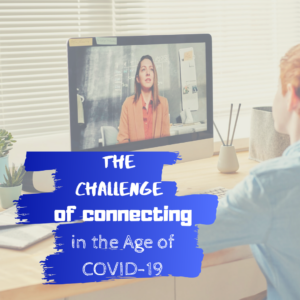 There is a popular saying that applies to learning: “you can lead a horse to water, but can’t make him drink.” Any educator knows that you can’t force a student to learn, though that does not stop them from trying anything possible. A teacher could create the most gorgeous lesson plans, and employ all the best known tactics, and there may still be students that don’t want to learn. Yet students are not horses, nor are teachers horse-trainers. They’re both human beings with a latent desire to find and share knowledge. Some students have not accessed this desire yet, and their teachers are trying earnestly to connect with these students on an intellectual level, to release that latent desire. For a teacher, there is no experience more gratifying than helping a student search deep for understanding and watch as they finally discover it!
There is a popular saying that applies to learning: “you can lead a horse to water, but can’t make him drink.” Any educator knows that you can’t force a student to learn, though that does not stop them from trying anything possible. A teacher could create the most gorgeous lesson plans, and employ all the best known tactics, and there may still be students that don’t want to learn. Yet students are not horses, nor are teachers horse-trainers. They’re both human beings with a latent desire to find and share knowledge. Some students have not accessed this desire yet, and their teachers are trying earnestly to connect with these students on an intellectual level, to release that latent desire. For a teacher, there is no experience more gratifying than helping a student search deep for understanding and watch as they finally discover it!
The Distance Before Distance-Learning
Connecting intellectually with students has always been the challenge addressed to teachers, even before social-distancing. Students face innumerable difficulties in their life that conflicts with regular attendance and consistent attention in the classroom. Many of these conflicts come from a barrage of social challenges, ranging from complex family tensions, lack of accessibility to adequate resources due to financial constraint, or just plain old emotional growing pains. Going to school each day is the most consistent life experience for many students, and teachers try their hardest to make the classroom experience as reliably consistent as possible.
Teachers who have the opportunity to work individually with students get a rare opportunity. Classroom sizes have limited the teacher’s reach to individual students, and standardization has normalized an almost industrial perspective of student pass-rates, as if failing students are merely the result of quality control. The more that students and teachers become statistics, the less that their human qualities are recognized and accessed. Needless to say, society has been widening the distance between students and teachers long before the Corona virus made it mandatory.
Share this:
- Click to share on Facebook (Opens in new window) Facebook
- Click to share on X (Opens in new window) X
- Click to share on LinkedIn (Opens in new window) LinkedIn
- Click to share on Pinterest (Opens in new window) Pinterest
- Click to share on Telegram (Opens in new window) Telegram
- Click to email a link to a friend (Opens in new window) Email
- More
10 Tips for Teaching Remotely
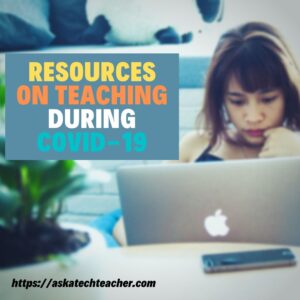 I’ve been working from home for years but most people haven’t. I posted this article about a year ago but have updated it for the challenges we now face with #covid19
I’ve been working from home for years but most people haven’t. I posted this article about a year ago but have updated it for the challenges we now face with #covid19
Truth is, life often interferes with work. Vacations, conferences, PD–all these take us away from our primary job functions and the environment where we are most comfortable delivering our best work. But you do need the right equipment and setup to make that happen. Here’s what I currently use to teach from home or can easily arrange:
-
- Have necessary apps on iPads and smartphones. This includes your LMS, virtual meeting tool, cloud accounts, email, scan, social media, and sharing.
- Have a digital notetaking program–Evernote, OneNote, Notability, or Google Keep for example.
- Wean yourself from printing hard copies. It’s easier to do than it sounds. My printer broke–well, it wouldn’t print more than one page without jamming. That made it hard to print a lot of documents. Instead, I loaded the document onto my iPad (or laptop) and interacted with it there. PDFS: I can annotate with the Edge browser or a dedicated app. Google and Microsoft docs: Easy to work with those right from the platform. Once I’ve marked them up as needed, I can email the file, take a screenshot and share it, or do nothing (in the case of Google docs). No printing required. I am now completely used to that–would never go back to the paper-wasting approach.
- If you go somewhere else to work (I was going to say a coffee shop but that’s out of bounds this month), don’t use a public WiFi. Use a hot spot connected to your phone. Public WiFi like Starbucks are notoriously insecure.
- Be brave about solving problems associated with online work. Don’t let setbacks and roadblocks stop you. Be accountable to yourself or you won’t get stuff done. I have to say, so many of my fellow teachers are risk-takers. When this remote teaching problem was dumped in their lap, their attitudes were positive, can-do, and try to stop me!
- Have a virtual meeting program like MS Teams, Zoom (if your school allows it), Google Hangouts, Google Meet, Webroom.net, Big Blue Button, or another. These are for larger groups (like a book club meeting). Small group video calls work nicely with programs like Facetime, Skype, or Google Hangouts.
- Student collaborative groups can be addressed with a mix of Facetime on phones and the Google Doc on the digital device. Or another way–I’d love to hear how your students address this.
- Have backup batteries for your phone, laptop, and iPad. You’re using them a lot more than usual. They’ll run through your power more quickly than you’re accustomed to. And, videos, personal hotspots and Google Maps burn through power. What should last nine hours turns out to be two.
- Have redundancy where something is important. For example, my external battery charger died and my iPad ran out of juice. Since then, I purchased a redundant backup power supply.
Share this:
- Click to share on Facebook (Opens in new window) Facebook
- Click to share on X (Opens in new window) X
- Click to share on LinkedIn (Opens in new window) LinkedIn
- Click to share on Pinterest (Opens in new window) Pinterest
- Click to share on Telegram (Opens in new window) Telegram
- Click to email a link to a friend (Opens in new window) Email
- More
Last Chance: Differentiated Instruction Online Class (MTI 563)
MTI 563: The Differentiated Teacher
MTI 563 starts in one week–Monday, April 27, 2020! Last chance to sign up. Click this link; search for MTI 563 and click for more information and to sign up.
What is it
Differentiation in the classroom means meeting students where they are most capable of learning. It is not an extra layer of work, rather a habit of mind for both teacher and student. Learn granular approaches to infusing differentiation into all of your lesson plans, whether you’re a Common Core school or not, with this hands-on, interactive class. Ideas include visual, audio, video, mindmaps, infographics, graphic organizers, charts and tables, screenshots, screencasts, images, games and simulations, webtools, and hybrid assessments.
Assessment is based on involvement, interaction with classmates, and completion of projects so be prepared to be fully-involved and an eager risk-taker. Price includes course registration, college credit, and all necessary materials. To enroll, click the link above, search for MTI 563 and sign up. Email askatechteacher at gmail dot com for questions.
What You Get
-
- 5 Activities (topics)
- tech ed videos, lesson plans, articles
- 5 weeks
- 4 virtual meetings
- Unlimited questions/coaching during virtual face-to-face meetings and other pre-arranged times. We stay until everyone leaves.
- 3 college credits
Course Objectives
At the completion of this course, you will be able to:
-
- Use technology to differentiate for student learning styles
- Understand how differentiating content and presentation engages a great proportion of learners
- Ensure that the outcome of student learning demonstrates understanding
- Vary assignments to address all learners’ needs
- Create an inclusive learning environment in the classroom
Who Needs This
This course is designed for classroom teachers, tech teachers, integration specialists, media specialists, LMS, administrators, principals, homeschoolers, teachers of teachers, and pre-service professionals.
What Do You Need to Participate
-
- Internet connection
- Accounts for online tools like a blog, Twitter, various web-based tools
- Google account (can be your school account or your personal one)
- Ready and eager to commit 5-10 hours per week for 5 weeks to learning tech
- Commitment to review materials prior to the virtual meeting (so you are prepared to address questions with classmates)
- Risk-taker attitude, inquiry-driven mentality, passion to optimize learning and differentiate instruction
NOT Included:
-
- Standard software assumed part of a typical ed tech set-up
- Tech networking advice
- Assistance setting up hardware, networks, infrastructure, servers, internet, headphones, microphones, phone connections, loading software
Screenshots
[gallery type="slideshow" ids="59175,59181,59177,59178,59179,59180,59176"]Share this:
- Click to share on Facebook (Opens in new window) Facebook
- Click to share on X (Opens in new window) X
- Click to share on LinkedIn (Opens in new window) LinkedIn
- Click to share on Pinterest (Opens in new window) Pinterest
- Click to share on Telegram (Opens in new window) Telegram
- Click to email a link to a friend (Opens in new window) Email
- More
Teaching During COVID-19
Articles on #CoronaVirus you won’t want to miss:
Resources You Need During #COVID19
Teaching Online During #COVID19
Teaching Online During #COVID19–More from my Inbox
#CoronaVirus–This Week’s Inbox
Teaching During #CoronaVirus–An Old Strategy That’s Perfect
13 Teaching Strategies to Shake up Your Remote Teaching
8 Ways Parents and Teachers Support Remote Teaching (coming May 28)
Share this:
- Click to share on Facebook (Opens in new window) Facebook
- Click to share on X (Opens in new window) X
- Click to share on LinkedIn (Opens in new window) LinkedIn
- Click to share on Pinterest (Opens in new window) Pinterest
- Click to share on Telegram (Opens in new window) Telegram
- Click to email a link to a friend (Opens in new window) Email
- More
#CoronaVirus–This Week’s Inbox
 Most of us are only a few weeks into teaching remotely. It’s still chaotic, messy, but we’re trying to make it work. We have the will, just need the way.
Most of us are only a few weeks into teaching remotely. It’s still chaotic, messy, but we’re trying to make it work. We have the will, just need the way.
Lots of education companies are stepping up to make that possible. Here’s a sampling of the many and varied emails I got this past week offering help:
More Resources to teach remotely
- Babbel–free language learning for all US K12 and college students
- Book Creator–if you use Book Creator, they have help for you as you teach remotely
- Flinn At-home Science
- Free resources for educators during the coronavirus pandemic–from SmartBrief on EdTech
- Houghton Mifflin Harcourt online At-home Learning Resources
- PBS–free curated standards-aligned videos, interactives, lesson plans, and more for CA
- STEM Remote Learning Solutions from Vernier–free for a limited time
- Thoughtful Learning Writing Units–free during Pandemic
- Wide Open School–from Common Sense Media
Remote Learning Tips
- Home Network Tips for WiFi use from the FCC
- Here’s what schools can do for students without internet–from EdSurge
- Tactical Ideas for Virtually Coaching Your Newly-virtual Teachers–a 35-minute video from Adam Geller
- Working from Home Tips for Teachers–from Edublog
More about COVID-19
This next shows how US school districts are managing remote teaching. Map of responses to COVID 19 from schools—pretty scary, at least to me. This updates constantly so what you see below may not be the most current. Click through:
Share this:
- Click to share on Facebook (Opens in new window) Facebook
- Click to share on X (Opens in new window) X
- Click to share on LinkedIn (Opens in new window) LinkedIn
- Click to share on Pinterest (Opens in new window) Pinterest
- Click to share on Telegram (Opens in new window) Telegram
- Click to email a link to a friend (Opens in new window) Email
- More
Teaching Online During COVID-19–More from my Inbox
 I am so proud of how the education community has stepped up to the challenge teachers face to continue the learning despite apocalyptic changes in the delivery system. Definitely this means teachers, administrators, parents and students, but I also include the companies and resource providers in the education ecosystem.
I am so proud of how the education community has stepped up to the challenge teachers face to continue the learning despite apocalyptic changes in the delivery system. Definitely this means teachers, administrators, parents and students, but I also include the companies and resource providers in the education ecosystem.
Here’s a sampling of the many and varied emails I got this past week offering help:
- New Remote Learning Tools and Resources
- How to teach remotely
New Remote Learning Tools and Resources
- America’s Pledge of Allegiance–this video teaches kids how to do it and this video makes it more of an event
- Canva for Education–Free (oh boy, I love this website)
- Checklist for Remote Learning
- Microsoft Distance Learning Tools from the amazing Dr. Monica Burns
- Two Collections of Hands-on Science Experiments to do at Home–From Richard Byrne
- Using buses as mobile hotspots--park the bus by a park for 30-60 minutes so students can download what they need for the day.
- Zapzapmath–automatic upgrade to premium until the end of the school year
Zoom is also offering a free upgrade to educators to help them to teach remotely during the pandemic. Here are a few tips on using Zoom to teach remotely:
Share this:
- Click to share on Facebook (Opens in new window) Facebook
- Click to share on X (Opens in new window) X
- Click to share on LinkedIn (Opens in new window) LinkedIn
- Click to share on Pinterest (Opens in new window) Pinterest
- Click to share on Telegram (Opens in new window) Telegram
- Click to email a link to a friend (Opens in new window) Email
- More









